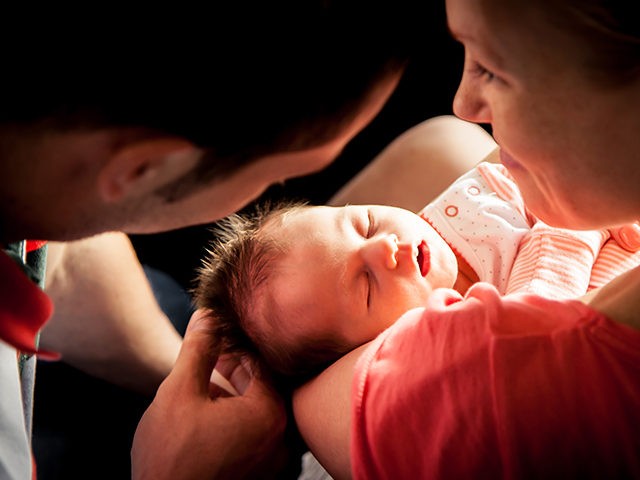The Lancet Countdown, an arm of the Lancet scientific journal associated with its controversial report linking autism and vaccines, has issued a report on the threat of climate change based on more controversial data from the United Nations Intergovernmental Panel on Climate Change.
The report makes sweeping claims, including the claim that “every child born today will be profoundly affected by climate change.”
The report includes more lifelong threats from climate change:
A child born today will experience a world that is more than four degrees warmer than the pre-industrial average, with climate change impacting human health from infancy and adolescence to adulthood and old age. Across the world, children are among the worst affected by climate change. Downward trends in global yield potential for all major crops tracked since 1960 threaten food production and food security, with infants often the worst affected by the potentially permanent effects of undernutrition
Through adolescence and beyond, air pollution—principally driven by fossil fuels, and exacerbated by climate change—damages the heart, lungs, and every other vital organ.
Later in life, families and livelihoods are put at risk from increases in the frequency and severity of extreme weather conditions, with women among the most vulnerable across a range of social and cultural contexts.
The 2019 report is based on an update of 41 indicators across five key domains: “climate change impacts, exposures, and vulnerability; adaptation, planning, and resilience for health; mitigation actions and health co-benefits; economics and finance; and public and political engagement,” which come from academia and UN agencies “on every continent.”
The report also supports the Paris climate accord, which President Donald Trump withdrew from based on the harm it would do the the U.S. economy while allowing the biggest polluters like China and India to continue polluting.
“The Paris Agreement has set a target of “holding the increase in the global average temperature to well below 2°C above pre-industrial levels and pursuing efforts to limit the temperature increase to 1·5°C,” the report said.
If the world compiled with the agreement a child born today would see the end of coal production in the United Kingdom and Canada during their childhood.
Children in France would see the ban of fossil-fuel vehicles by the time they are 21 and a “net-zero” world at 31 or by 2050.
“The changes seen in this alternate pathway could result in cleaner air, safer cities, and more nutritious food, coupled with renewed investment in health systems and vital infrastructure,” the report said.
The report also states that eight of the ten hottest years on record were in the past decade. But it does not note the longterm global weather, including the hottest day ever recorded, according to National Centers for Environmental Information:
On July 5–14, 1913, Death Valley endured an intense stretch of hot weather. The high temperature reached 125°F or more every day, and that 10-day period still ranks as the longest consecutive stretch of temperatures that high in the valley. The hottest days were from July 9 to 13, when the high temperature reached as least 129°F each day. On July 10, the temperature spiked to 134°F, solidifying Death Valley’s scorching reputation.
As for the Lancet’s controversial prior reported, the United States Library of Medicine at the National Institutes of Health reported:
Twelve years after publishing a landmark study that turned tens of thousands of parents around the world against the measles, mumps and rubella (MMR) vaccine because of an implied link between vaccinations and autism, The Lancet has retracted the paper. In a statement published on Feb. 2, the British medical journal said that it is now clear that “several elements” of a 1998 paper it published by Dr. Andrew Wakefield and his colleagues (Lancet 1998;351[9103]:637–41) “are incorrect, contrary to the findings of an earlier investigation.”
In the original paper, Wakefield and 12 coauthors claimed to have investigated “a consecutive series” of 12 children referred to the Royal Free Hospital and School of Medicine with chronic enterocolitis and regressive developmental disorder. The authors reported that the parents of eight of the 12 children associated their loss of acquired skills, including language, with the MMR vaccination. The authors concluded that “possible environmental triggers” (i.e. the vaccine) were associated with the onset of both the gastrointestinal disease and developmental regression.
In fact, as Britain’s General Medical Council ruled in January, the children that Wakefield studied were carefully selected and some of Wakefield’s research was funded by lawyers acting for parents who were involved in lawsuits against vaccine manufacturers. The council found Wake-field had acted unethically and had shown “callous disregard” for the children in his study, upon whom invasive tests were performed.
CNN got reaction to the Lancet report.
“The public doesn’t fully see this as a human health crisis. Maybe polar bears were our early indicator — the proverbial canary in the coal mine,” Dr. Jonathan Patz, a professor and director of the Global Health Institute at the University of Wisconsin-Madison, who did not take part in the report. “But when you talk about this crisis, the bear images should be replaced with pictures of children.”
Follow Penny Starr on Twitter

COMMENTS
Please let us know if you're having issues with commenting.